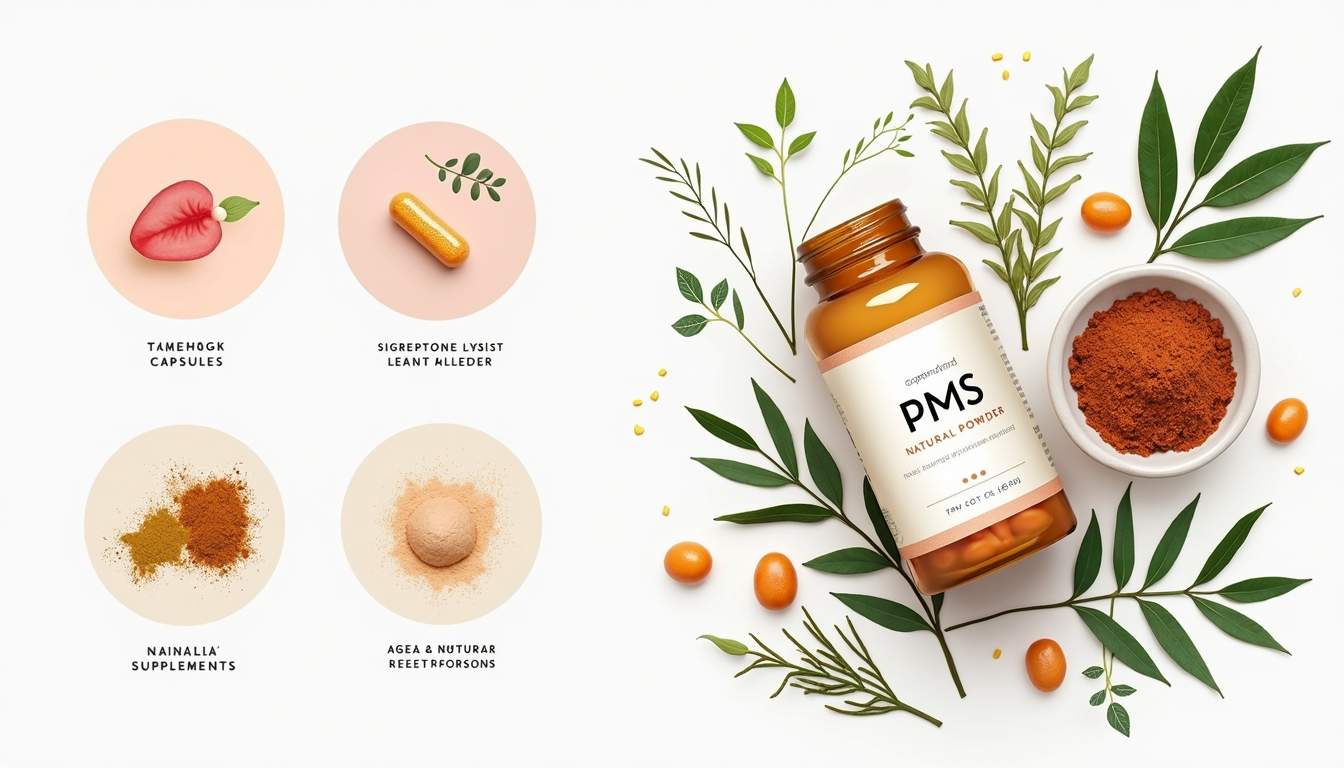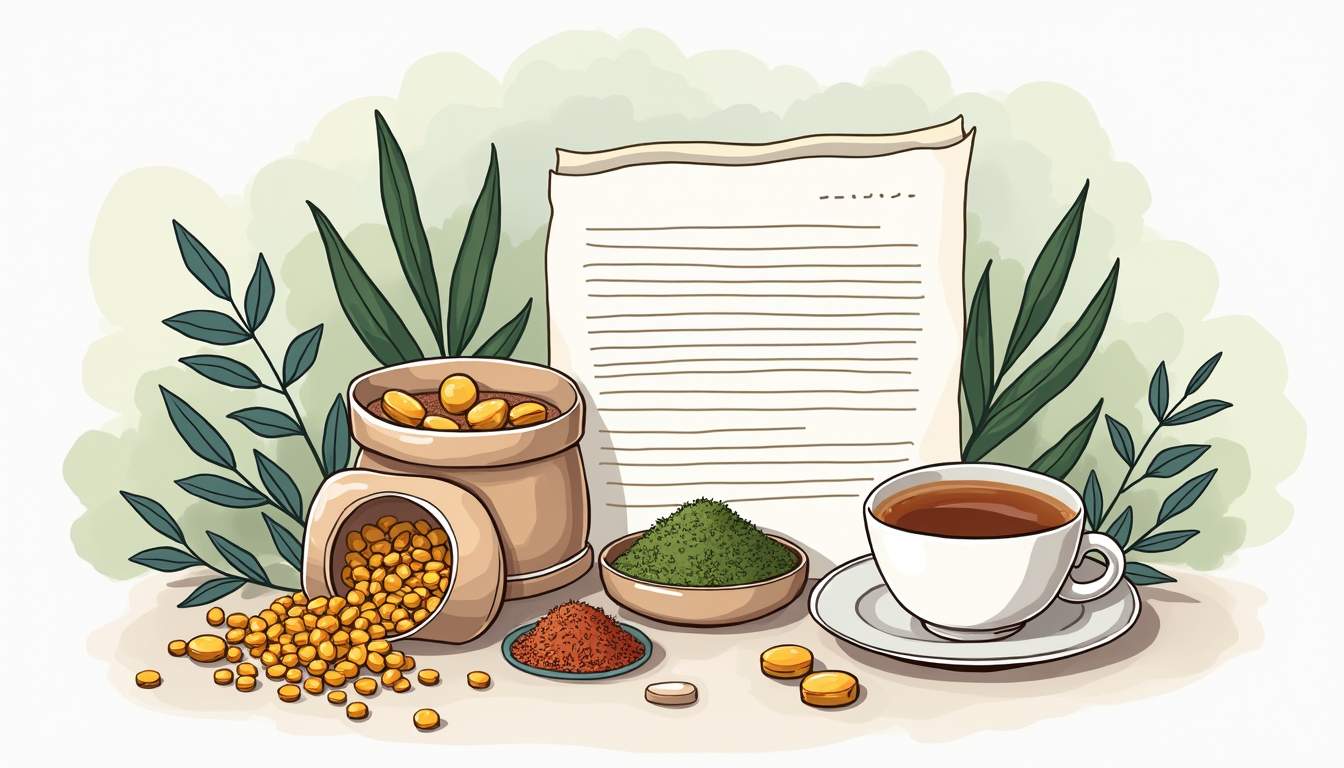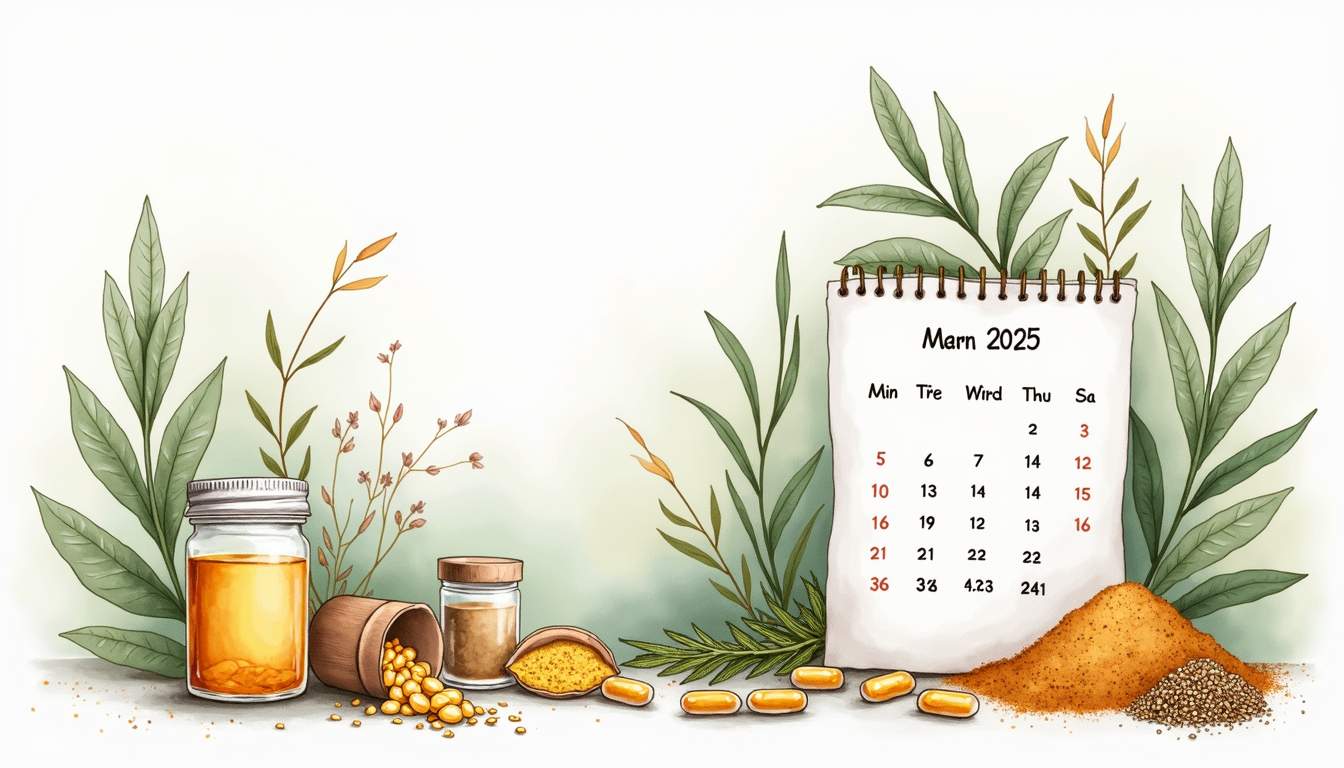Premenstrual syndrome (PMS) affects a significant number of women worldwide, often leading to a range of physical and emotional symptoms that can disrupt daily life. While various treatment options exist, many women are turning to organic supplements as a natural alternative. This article explores the benefits of organic supplements in managing PMS, delving into their potential superiority over conventional treatments.
Understanding PMS and Its Impact on Women's Health
PMS is a complex condition that encompasses a variety of symptoms related to the menstrual cycle. These symptoms can range from mild to severe and may include mood swings, bloating, fatigue, and physical discomfort. Understanding the underlying physiological mechanisms of PMS is crucial for effective management.

Common Symptoms and Their Physiological Basis
The symptoms of PMS are believed to be linked to hormonal fluctuations that occur during the menstrual cycle. Estrogen and progesterone levels rise and fall, impacting neurotransmitter activity in the brain, which can lead to mood disturbances. Physical symptoms, such as breast tenderness and abdominal cramps, are often attributed to changes in hormone levels and fluid retention.
Additionally, the body's response to these hormonal changes can trigger various emotional symptoms, including anxiety and irritability. The interplay between hormones and neurotransmitters illustrates the complexity of PMS, highlighting the need for effective management strategies that address both physical and emotional symptoms. Research has shown that women with PMS may have altered serotonin levels, a neurotransmitter that plays a significant role in mood regulation. This alteration can exacerbate feelings of sadness or irritability, making it essential to consider both hormonal and neurochemical factors when addressing PMS.
Conventional Treatment Approaches and Their Limitations
Conventional treatments for PMS often include over-the-counter pain relievers, hormonal contraceptives, and antidepressants. While these options can provide relief for some women, they are not without limitations. Pain relievers may only address physical symptoms, leaving emotional distress unmitigated. Hormonal contraceptives can alter natural hormone levels, leading to unwanted side effects.
Moreover, antidepressants, while effective for some, may not be suitable for all women and can come with a range of side effects, including weight gain and fatigue. These limitations have prompted many women to seek alternative solutions, such as organic supplements, which may offer a more holistic approach to managing PMS. Herbal remedies like chasteberry and evening primrose oil have gained popularity for their potential to balance hormones naturally. Additionally, lifestyle modifications, including regular exercise, a balanced diet rich in omega-3 fatty acids, and stress-reduction techniques such as yoga and meditation, can also play a significant role in alleviating symptoms. By exploring these alternatives, women may find a more personalized and effective way to cope with the challenges of PMS, ultimately enhancing their overall well-being during this time of the month.
The Benefits of Organic Supplements for PMS Management
Organic supplements have gained popularity as a natural option for managing PMS symptoms. These supplements often contain a blend of vitamins, minerals, and herbal ingredients that are believed to support hormonal balance and alleviate symptoms. For a deeper understanding of the benefits of organic supplements, you can refer to this scientific paper on the advantages of organic dietary supplements. Understanding the benefits of these organic alternatives is essential for those considering them as part of their PMS management strategy.
Key Organic Ingredients That Target Hormonal Balance
Several organic ingredients are known for their potential to support hormonal balance and alleviate PMS symptoms. For instance, chaste tree berry (Vitex agnus-castus) has been shown to help regulate menstrual cycles and reduce symptoms such as mood swings and breast tenderness. Additionally, evening primrose oil, rich in gamma-linolenic acid (GLA), may help reduce inflammation and improve overall hormonal health.
Other beneficial ingredients include magnesium, which can help alleviate bloating and mood disturbances, and B vitamins, which play a crucial role in energy metabolism and mood regulation. The synergistic effect of these organic ingredients may provide a more comprehensive approach to managing PMS compared to conventional treatments. Moreover, herbal remedies like ginger and turmeric, known for their anti-inflammatory properties, can also be beneficial. Ginger may help reduce menstrual pain, while turmeric can support overall health by combating inflammation and promoting a sense of well-being.
How Organic Supplements Minimize Side Effects Compared to Synthetic Alternatives
One of the significant advantages of organic supplements is their potential to minimize side effects. Unlike synthetic medications, which can often lead to adverse reactions, organic supplements are derived from natural sources and are generally well-tolerated by the body. This can be particularly beneficial for women who are sensitive to synthetic compounds or who prefer a more natural approach to health.
Furthermore, organic supplements typically contain fewer artificial additives and preservatives, making them a cleaner option for those concerned about the long-term effects of synthetic substances. By choosing organic supplements, women may experience relief from PMS symptoms without the burden of unwanted side effects, promoting overall well-being. Additionally, the holistic approach of organic supplements often encompasses lifestyle factors such as diet and exercise, encouraging women to adopt healthier habits that can further alleviate PMS symptoms. Incorporating practices such as yoga or mindfulness meditation alongside the use of organic supplements can enhance their effectiveness, creating a well-rounded strategy for managing PMS and improving quality of life.
Incorporating Organic Supplements into a Holistic PMS Management Plan
To maximize the benefits of organic supplements for PMS management, it is essential to incorporate them into a holistic plan that includes lifestyle changes and self-care practices. This comprehensive approach can enhance the effectiveness of the supplements and contribute to overall health and well-being. By acknowledging the interconnectedness of physical, emotional, and mental health, women can create a more sustainable and effective strategy for managing PMS symptoms.

Recommended Dosages and Timing for Maximum Effectiveness
When incorporating organic supplements into a PMS management plan, understanding proper dosages and timing is crucial. It is advisable to consult with a healthcare professional to determine the appropriate dosages based on individual needs and health conditions. Generally, following the manufacturer's recommendations and starting with a lower dose can help assess tolerance and effectiveness. Additionally, keeping a record of any changes in symptoms can provide valuable insights into how well the supplements are working.
Timing is also important; some supplements may be more effective when taken during specific phases of the menstrual cycle. For example, certain herbal supplements may be best taken in the luteal phase, while others may be beneficial throughout the entire cycle. Keeping a menstrual diary can help track symptoms and identify the most effective timing for supplement intake. This practice not only aids in understanding personal patterns but can also empower women to take charge of their health by recognizing how their bodies respond to different interventions.
Complementary Lifestyle Changes to Enhance Supplement Benefits
In addition to taking organic supplements, implementing complementary lifestyle changes can significantly enhance their benefits. Regular physical activity, for instance, has been shown to alleviate PMS symptoms by improving mood and reducing stress. Engaging in activities such as yoga or walking can be particularly beneficial. Furthermore, practices like mindfulness and meditation can help manage emotional fluctuations that often accompany PMS, promoting a sense of calm and balance.
Diet also plays a crucial role in managing PMS. A balanced diet rich in whole foods, including fruits, vegetables, whole grains, and healthy fats, can support hormonal balance and overall health. Staying hydrated and reducing caffeine and sugar intake may further help mitigate symptoms. Incorporating foods high in magnesium, such as nuts and leafy greens, can also be advantageous, as magnesium has been linked to reduced PMS symptoms. By combining organic supplements with these lifestyle changes, women can create a more effective and holistic approach to managing PMS. Additionally, fostering a supportive community, whether through friends, family, or online groups, can provide emotional support and shared experiences, further enhancing the management of PMS symptoms.
In conclusion, organic supplements offer a promising alternative for women seeking to manage PMS symptoms naturally. By understanding the physiological basis of PMS, recognizing the limitations of conventional treatments, and exploring the benefits of organic ingredients, women can make informed decisions about their health. Incorporating these supplements into a holistic management plan, alongside lifestyle changes, can lead to improved well-being and a more balanced menstrual cycle.
Looking for a change? Discover our methylated supplement here.

Share:
How Bioavailability Impacts the Effectiveness of PMS Supplements
How Soil Depletion Impacts PMS Symptoms and the Role of Advanced Supplements